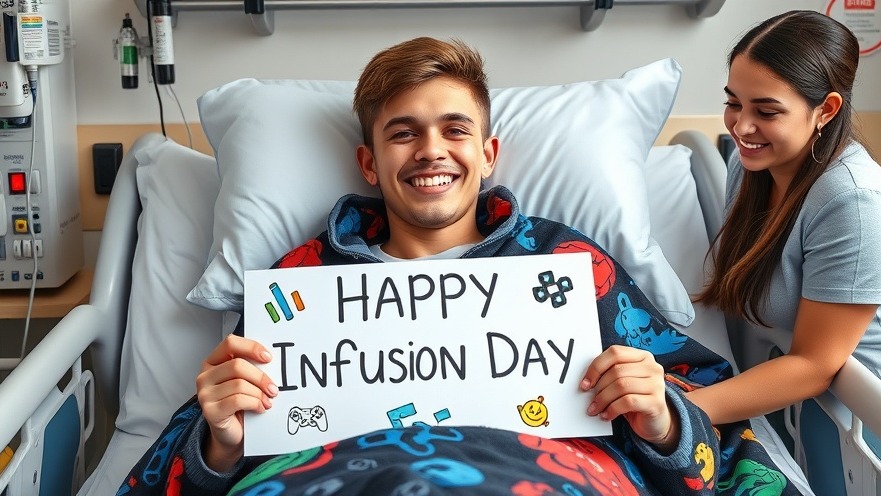
Breaking New Ground in Sickle Cell Treatment
The advancements in gene therapy have taken a monumental leap with the successful treatment of Sebastien Beauzile, a 21-year-old from New York who has been declared cured of sickle cell anemia after receiving an innovative therapy called Lyfgenia.
Sebastien's journey reflects a turning point for the millions affected by sickle cell disease, a genetic condition predominantly impacting individuals of African descent. Sickle cell anemia has plagued Sebastien's life with relentless pain and complications that hindered his daily activities and dreams. He poignantly shared, "Growing up with sickle cell, it’s kind of been over all my life. So now that I’m cured, I’d say it’s my new birthday, because now nothing’s going to stop me.”
Lessons from the Past: How Sickle Cell Treatment Has Evolved
Historically, treatments for sickle cell anemia were limited, with bone marrow transplants being the only curative option. Yet, with the advent of directed gene therapies, methodologies have evolved. The introduction of Lyfgenia represents a promising shift away from invasive procedures traditionally needed to manage this complex disorder.
Dr. Jeffrey Lipton, the leading hematologist at Cohen Children’s Medical Center, articulates this shift by stating that Lyfgenia could replace bone marrow transplants as the primary treatment for sickle cell disease. He explains, "This therapy is a fix, representing a revolution in how we treat this condition, potentially affecting countless lives.”
What is Lyfgenia and How Does It Work?
Lyfgenia works by taking a patient’s bone marrow and introducing healthy adult hemoglobin from a donor into the mix. Hemoglobin is crucial for oxygen transport in the body, and its dysfunction in sickle cell patients leads to the characteristic complications of the disease. By infusing patients with corrected hemoglobin, doctors have the unique opportunity to alter the trajectory of their health.
Once infused, the body begins to code for this healthier hemoglobin instead of producing the faulty version. For Sebastien, this meant an end to the debilitating symptoms he had battled for years. The progress he has made post-treatment is a testament to the potential of genetic advancements in medicine.
Expanding Horizons: The Future of Gene Therapy in Hematology
As gene therapies gain traction, researchers remain enthusiastic about expanding applications beyond sickle cell anemia. A related breakthrough was reported with 20-year-old Brandon Baptiste, who benefited from another gene-editing technique called base editing. His path to recovery involved carefully designed trials that eliminated defective blood stem cells, allowing for the restoration of healthy cells.
Both cases exemplify a burgeoning field of hematological treatment options. The underlying technology not only offers potential cures for various blood disorders but also hints at broader implications across genetic conditions. Experts believe that as these techniques become more refined, they could lead to a future where genetic diseases can be managed or cured more effectively.
Community Impact: Why These Cures Matter
Community support plays a vital role in the journeys of those affected by sickle cell anemia and similar conditions. As patients like Sebastien share their stories, awareness around these genetic disorders grows, prompting greater investments into research and treatment accessibility.
Furthermore, the success of treatments like Lyfgenia fosters hope among families dealing with sickle cell anemia. They can envision a future where their loved ones no longer need to endure the relentless cycles of pain and hospitalization. Community advocates and public health officials must rally around these initiatives to ensure that new treatments are not just available in select hospitals but accessible to all who need them.
What’s Next: Join the Conversation
The triumphs celebrated in Sebastien's case raise important questions about the future of genetic therapies and their accessibility. As the medical community continues to push boundaries, it's incumbent upon society to advocate for equitable healthcare. Awareness breeds action, and there are opportunities for everyone to be involved—from supporting local health initiatives to sharing these inspiring stories within our communities. Change can only happen when equipped with knowledge and passion for those in need.
As advocates for health equity, let’s come together to not only celebrate these medical breakthroughs but also to push for advances in accessibility. We can harness the power of community to ensure all families facing similar battles receive the awareness and support needed to thrive.
 Add Row
Add Row  Add
Add 




Write A Comment